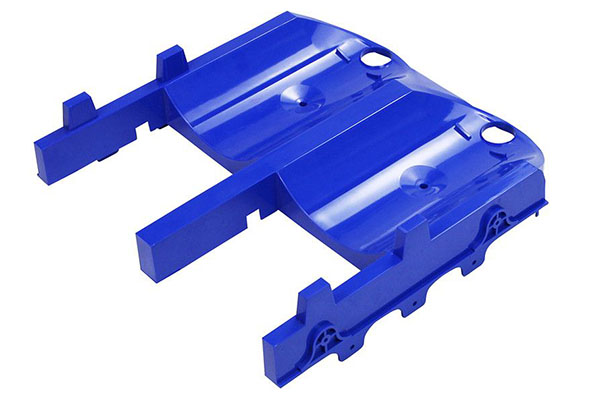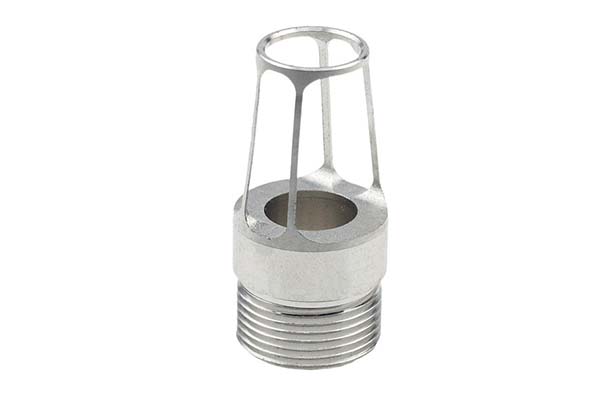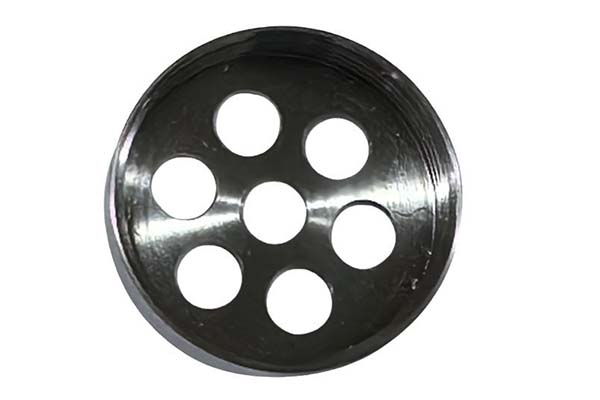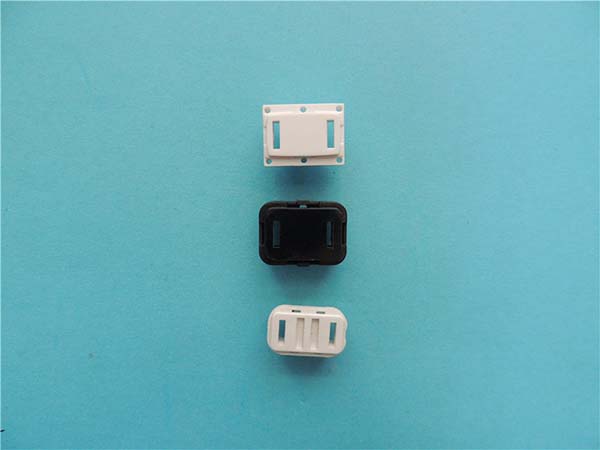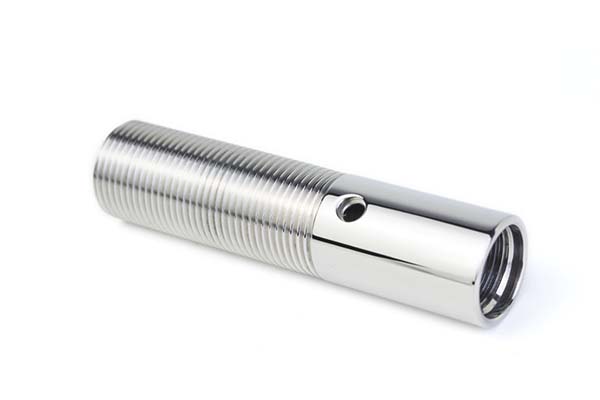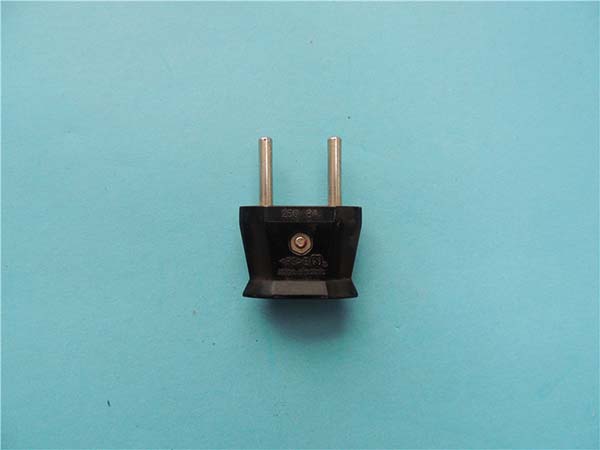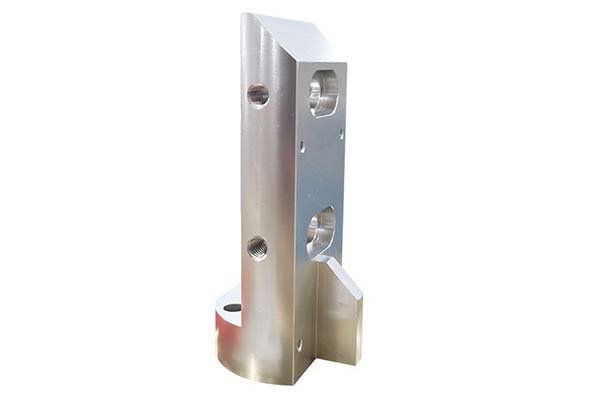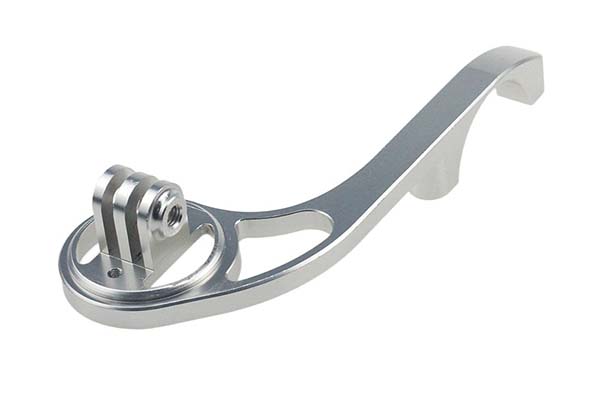1. Introduction
In the ever - evolving landscape of modern manufacturing, the precision machining industry stands as a cornerstone, playing a pivotal role in driving technological advancements across a multitude of sectors. Precision machining is not just a manufacturing process; it is the key to unlocking the production of components with unrivaled accuracy, tight tolerances, and complex geometries.
Innovation in the precision machining industry is not just a luxury; it is a necessity. As market demands become more stringent and competition intensifies, manufacturers must constantly seek out new technologies, materials, and processes to stay ahead. Yigu Technology will delve deep into how the precision machining industry is navigating the cutting - edge of innovation. We will explore the latest technological advancements, such as automation, additive manufacturing, and advanced control systems. Yigu Technology will also examine how these innovations are transforming the way precision - machined components are designed, produced, and quality - controlled. By understanding these trends, manufacturers can better position themselves to meet the challenges and opportunities of the future, ensuring that they can continue to supply high - quality, precision - machined components to the industries that rely on them.
2. Key Technologies Driving Precision Machining
2.1 CNC Systems
CNC (Computer Numerical Control) systems lie at the heart of precision machining, acting as the brain that orchestrates the precise movements of machine tools. These systems operate based on pre - programmed instructions, enabling manufacturers to achieve an extraordinary level of accuracy in the machining process.
The primary function of a CNC system is to control the movement of axes in a machine tool, such as the X, Y, and Z axes in a milling machine or the rotational axis in a lathe. By precisely controlling the position, speed, and acceleration of these axes, CNC systems can create complex shapes and geometries with micron - level precision. For Yigu Technology example, in the aerospace industry, the manufacturing of aircraft engine blades is a highly demanding task. These blades have intricate airfoil shapes that require extremely tight tolerances to ensure optimal engine performance. A CNC - controlled milling machine can follow a detailed program to remove material from a block of high - strength alloy, gradually shaping it into a precisely designed engine blade. The CNC system ensures that each cut is made with pinpoint accuracy, resulting in a blade that meets the stringent requirements for aerodynamics, heat resistance, and mechanical strength.
Moreover, CNC systems offer the flexibility to produce a wide variety of parts. With a simple change in the control program, manufacturers can switch from producing one type of component to another, making them ideal for both small - batch production and large - scale manufacturing runs. This adaptability allows companies to respond quickly to changing market demands and design modifications, reducing lead times and increasing overall productivity.
2.2 Automation
Automation has revolutionized the precision machining industry, bringing about significant improvements in production efficiency, quality control, and cost - effectiveness. Automated systems in precision machining can handle a wide range of tasks, from loading and unloading workpieces to performing complex machining operations.
One of the most significant advantages of automation is its ability to enhance production efficiency. Automated machining processes can operate continuously for long periods, with minimal downtime for breaks or shift changes. For instance, in the automotive industry, automated production lines are used to manufacture engine components such as cylinder heads, crankshafts, and camshafts. A study by the International Federation of Robotics shows that in a typical automotive engine production plant, the use of automation can increase the production rate by up to 300%. Robots and automated conveyors work in harmony to move raw materials, semi - finished products, and finished components between different machining stations. This not only speeds up the production process but also ensures a consistent flow of work, reducing bottlenecks and idle time.
2.3 Additive Manufacturing (3D Printing)
Additive manufacturing, commonly known as 3D printing, has emerged as a game - changing technology in the precision machining industry. Unlike traditional subtractive machining methods, which remove material from a workpiece to create a desired shape, 3D printing builds objects layer by layer from a digital model, using materials such as plastics, metals, ceramics, and composites.
One of the key advantages of 3D printing in precision machining is its ability to create complex geometries that are difficult or impossible to achieve with traditional methods. This is particularly useful in industries such as medical and aerospace, where components often have intricate internal structures or unique shapes. For example, in the production of medical implants, 3D printing allows for the creation of customized implants that are tailored to the specific anatomy of a patient. These implants can have porous structures that promote bone ingrowth, improving the long - term stability of the implant. Traditional manufacturing methods would struggle to produce such complex and customized structures with the same level of precision and efficiency.
Another significant benefit of 3D printing is its role in rapid prototyping. Designers can quickly transform a digital design into a physical prototype using a 3D printer. This enables them to test and validate their designs in a short period, making it easier to identify and correct any design flaws before moving on to full - scale production. In the product development cycle, this can significantly reduce time - to - market and development costs. For instance, a startup in the consumer electronics industry can use 3D printing to create a prototype of a new product within a few days. They can then conduct user testing and make design improvements based on the feedback, rather than waiting weeks or months for a prototype to be produced using traditional manufacturing methods.
To better understand the differences between traditional machining and 3D printing in the context of manufacturing complex medical implants, the following Yigu Technology table provides a comparison:
| Feature | Traditional Machining | 3D Printing |
| Complexity of Geometry | Limited by the capabilities of the machining tools. Creating intricate internal structures or complex curved surfaces can be extremely difficult and costly. | Can easily create complex geometries, including internal channels, lattice structures, and custom - shaped components, without the need for specialized tools or complex setups. |
| Material Waste | Involves removing large amounts of material from a workpiece, resulting in significant material waste, especially for complex shapes. | Adds material layer by layer, minimizing material waste as only the necessary material is used in the construction of the object. |
| Customization | Customization can be challenging and expensive, often requiring the creation of new tooling or molds for each unique design. | Ideal for customization as each object can be easily customized based on a digital model without significant additional costs. |
| Production Time for Prototypes | Can be time - consuming, especially when multiple machining operations and tool changes are required. Prototyping can take weeks or even months. | Significantly faster for prototyping, with some small - scale prototypes being produced within hours. |
| Cost for Small - Batch Production | High costs for small - batch production due to the need for tooling setup and the relatively slow production rate. | More cost - effective for small - batch production as there is no need for expensive tooling, and each item can be produced with the same ease as the first. |
4. Precision Machining Processes and Material Capabilities
4.1 Key Machining Processes
Precision machining encompasses a diverse range of processes, each with its own unique principles, applications, and advantages.
The following Yigu Technology table compares the key characteristics of these machining processes:
| Machining Process | Typical Precision (mm) | Surface Roughness (Ra, μm) | Ideal for Materials | Applications |
| Milling | ±0.01 - ±0.1 | 0.8 - 6.3 | Steel, Aluminum, Plastics | Aerospace components, automotive parts, general mechanical parts |
| Turning | ±0.001 - ±0.01 | 0.2 - 1.6 | Steel, Aluminum, Copper | Shafts, axles, threaded components |
| Grinding | ±0.0001 - ±0.001 | 0.01 - 0.8 | Hardened steels, ceramics, bearing materials | Bearing races, hydraulic components, optical components |
| EDM | ±0.001 - ±0.01 | 0.2 - 3.2 | Hardened steels, carbide, ceramics | Mold cavities, intricate parts, parts with high - aspect - ratio features |
| Laser Cutting | ±0.05 - ±0.1 | 1.6 - 6.3 | Metals, plastics, composites | Circuit boards, automotive body parts, aerospace sheet metal components |
4.2 Material Options
Precision machining is capable of working with a wide variety of materials, each selected based on its unique properties and suitability for specific applications.
Steel
Steel is a popular choice in precision machining due to its high strength, durability, and excellent mechanical properties. It comes in various grades, such as carbon steel, alloy steel, and stainless steel, each with its own set of characteristics. Carbon steel is known for its good machinability and relatively low cost, making it suitable for general - purpose applications where strength and wear resistance are required, such as in the manufacturing of gears, shafts, and bolts. Alloy steel, on the other hand, contains additional alloying elements like chromium, nickel, and molybdenum, which enhance its strength, hardness, and corrosion resistance. It is often used in applications that demand high - performance components, such as in the automotive and aerospace industries. Stainless steel, with its high chromium content, offers excellent corrosion resistance, making it ideal for applications in harsh environments, such as in the medical and food processing industries.
Aluminum
Aluminum is highly valued for its lightweight nature, high strength - to - weight ratio, and good thermal conductivity. It is widely used in the aerospace and automotive industries, where reducing weight is crucial for improving fuel efficiency and performance. In the aerospace industry, aluminum alloys are used to manufacture aircraft wings, fuselages, and engine components. In the automotive industry, aluminum is used for engine blocks, wheels, and body panels. Aluminum is also relatively easy to machine, with good chip - forming characteristics, allowing for high - speed machining and efficient material removal. However, it has a relatively low melting point compared to some other metals, which can pose challenges in certain high - temperature applications.
Plastics
Engineering plastics, such as ABS (Acrylonitrile Butadiene Styrene), PEEK (Polyether Ether Ketone), and Nylon, are commonly used in precision machining. ABS is a versatile plastic with good impact resistance, dimensional stability, and ease of machining. It is often used in consumer electronics, such as the casings of smartphones and laptops. PEEK is a high - performance thermoplastic with excellent mechanical properties, chemical resistance, and high - temperature stability. It is used in applications where extreme conditions are present, such as in the aerospace and medical industries, for components like bearings, seals, and implantable devices. Nylon is known for its high strength, abrasion resistance, and self - lubricating properties. It is used in a wide range of applications, from gears and bearings to textile machinery components. Plastics are generally more cost - effective than metals in many applications, and they can be easily customized through processes like injection molding and precision machining.
Exotic Materials
Exotic materials, such as titanium, Inconel, and carbon fiber composites, are used in high - performance applications that require exceptional properties. Titanium is a lightweight metal with high strength, corrosion resistance, and biocompatibility. It is widely used in the aerospace, medical, and military industries. In the aerospace industry, titanium is used for aircraft engine components, structural parts, and landing gear. In the medical field, it is used for implants, such as hip and knee replacements, due to its biocompatible nature. Inconel is a nickel - based superalloy with excellent high - temperature strength, corrosion resistance, and oxidation resistance. It is used in applications where extreme heat and corrosive environments are present, such as in gas turbines, chemical processing plants, and aerospace engines. Carbon fiber composites, consisting of carbon fibers embedded in a polymer matrix, offer a high strength - to - weight ratio, stiffness, and excellent fatigue resistance. They are used in the aerospace, automotive, and sports equipment industries. For example, in the aerospace industry, carbon fiber composites are used to manufacture aircraft wings, fuselages, and control surfaces, reducing the weight of the aircraft and improving its fuel efficiency and performance.
The following Yigu Technology table compares the key properties of these materials:
| Material | Tensile Strength (MPa) | Density (g/cm³) | Corrosion Resistance | Heat Resistance | Machinability |
| Carbon Steel | 400 - 2000 (depending on grade) | 7.85 | Moderate (rusts easily without protection) | Moderate | Good |
| Aluminum Alloy | 200 - 600 (depending on alloy) | 2.7 | Good | Limited (low melting point) | Excellent |
| ABS Plastic | 25 - 55 | 1.04 - 1.06 | Good | Limited (softens at relatively low temperatures) | Good |
| PEEK Plastic | 90 - 100 | 1.32 | Excellent | High (can withstand high temperatures) | Fair |
| Titanium | 400 - 1200 (depending on alloy) | 4.51 | Excellent | High | Moderate (challenging to machine due to high chemical reactivity) |
| Inconel | 650 - 1200 (depending on alloy) | 8.2 - 8.8 | Excellent | Very high | Difficult (due to high strength and work - hardening tendency) |
| Carbon Fiber Composite | 1000 - 5000 (depends on fiber orientation and matrix) | 1.5 - 2.0 | Good | High (depends on matrix) | Challenging (specialized tools and techniques required) |
8. Conclusion
The precision machining industry has undergone a remarkable transformation in recent years, driven by a confluence of technological advancements, changing market demands, and global competition. The adoption of advanced technologies such as CNC systems, automation, and additive manufacturing has not only enhanced the precision and efficiency of the machining process but has also opened up new possibilities for the production of complex and high - performance components.
Yigu Technology Additive manufacturing, or 3D printing, has disrupted traditional manufacturing paradigms by offering the ability to create complex geometries, rapid prototypes, and customized components. This technology has found particular applications in industries such as aerospace, medical, and automotive, where the demand for lightweight, high - performance, and patient - specific components is high. The future of additive manufacturing in precision machining holds great promise, with ongoing research and development focused on improving material properties, increasing build speeds, and expanding the range of printable materials.
The precision machining industry's impact on various sectors, including aerospace, automotive, and medical devices, cannot be overstated. In the aerospace industry, precision - machined components are essential for ensuring the safety and efficiency of aircraft. The automotive industry relies on precision machining to produce high - performance engines and transmissions, while the medical device sector depends on it for the manufacturing of critical surgical instruments and implants.
FAQ
What is the most critical technology in precision machining?
There isn't a single most critical technology as CNC systems, automation, and additive manufacturing all play crucial roles. CNC systems provide the precision control necessary for accurate machining, automation enhances efficiency and quality, and additive manufacturing enables the creation of complex geometries. Each technology is essential depending on the specific requirements of the machining task, such as high - volume production (where automation and CNC are vital) or the production of intricate prototypes (where additive manufacturing may be more important).
How does precision machining ensure high - quality products?
Precision machining ensures high - quality products through multiple means. First, advanced technologies like CNC systems allow for extremely accurate control over machining operations, reducing errors. Stringent quality control processes are in place, which often involve the use of advanced measurement tools such as Coordinate Measuring Machines (CMMs) and laser interferometers to verify that components meet tight tolerances. Skilled operators also play a role in carefully monitoring and adjusting the machining process. Additionally, the choice of appropriate materials and machining processes tailored to the product requirements contributes to the overall quality of the final product.
Can precision machining work with all types of materials?
While precision machining can work with a wide variety of materials, including metals like steel, aluminum, and titanium, plastics such as ABS, PEEK, and Nylon, and exotic materials like Inconel and carbon fiber composites, it is not suitable for all materials. Some materials may be too hard, brittle, or have unique properties that make them difficult to machine using traditional precision machining methods. For example, extremely hard ceramics may require specialized techniques like EDM (Electric Discharge Machining) for precision shaping, and some soft or gummy materials may pose challenges in achieving the desired precision and surface finish.
